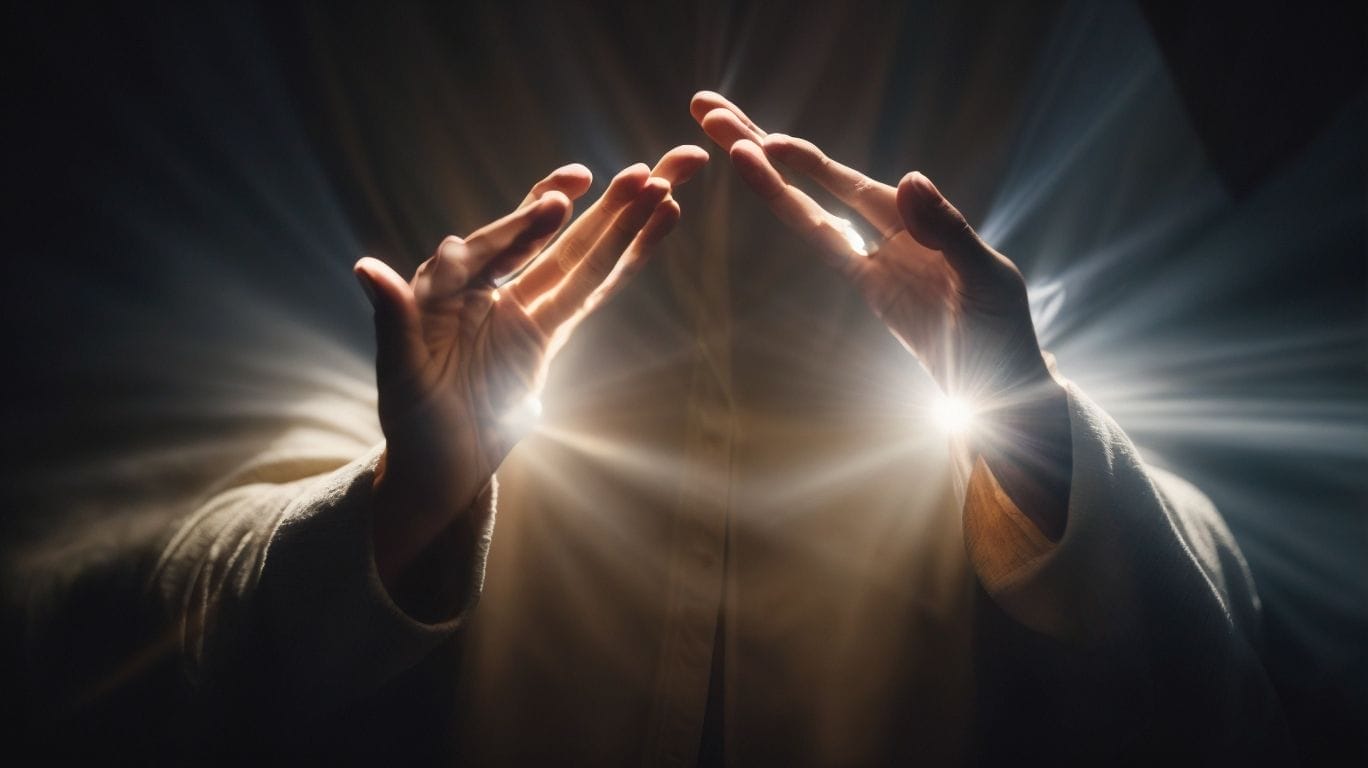The discussion surrounding free will and predestination is complex and deeply theological, with roots in various religious beliefs. It delves into the profound questions of human choice and divine intervention. Free will is the belief that individuals can make independent choices and decisions. On the other hand, predestination is the concept that a higher power has predetermined the course of human events, including the destiny of individuals. Understanding this debate requires exploring how different religions and denominations view these concepts and examining the biblical verses that support each viewpoint. While some verses affirm the existence of free will, others argue for the idea of predestination. However, some discussions seek to find harmony between these seemingly contradictory concepts. Most importantly, understanding how scholars and theologians interpret these verses and the implications of these beliefs in daily life offers valuable insights into this ongoing theological discourse.
Key takeaways:
- Free will and predestination are debated topics: There is a long-standing theological debate regarding the extent of human free will and the role of predestination in human actions and salvation.
- Bible verses support both free will and predestination: The Bible contains verses that seem to support both free will and predestination, leading to different interpretations among scholars, theologians, and different religious denominations.
- The tension between free will and predestination is unresolved: Despite efforts to harmonize these concepts, the tension between free will and predestination remains, and many scholars continue to debate and explore different viewpoints on this topic.
What is Free Will?

Photo Credits: 777Legion.Com by Russell Baker
The concept of free will, or what is free will, is the belief that individuals can make choices freely without external forces or predestination dictating their decisions. Free will is a fundamental aspect of human existence, enabling individuals to exercise autonomy and take responsibility for their actions. What is free will? It is a philosophical and theological idea that has been debated for centuries. Pro-tip: Remember that free will allows us to shape our own lives, but it also comes with the responsibility to consider the consequences of our choices.
What is Predestination?

Photo Credits: 777Legion.Com by Russell Hall
Predestination is a theological concept that seeks to understand God’s predetermined plan for each individual’s salvation. What is predestination, you might ask? Well, it is the belief that before the beginning of time, God determined the ultimate fate of every person, whether they will be saved or condemned. This idea can be found within various religious traditions, including Christianity and Islam. Predestination raises questions about free will and the extent to which individuals control their destiny. It is a complex and debated concept among theologians, often explored through the interpretation of religious texts and philosophical discussions.
Understanding the Debate: Free Will vs Predestination

Photo Credits: 777Legion.Com by Christopher Miller
Understanding the Debate: Free Will vs Predestination
The discussion surrounding the debate between free will and predestination has spanned centuries within theological circles. To truly grasp the essence of this ongoing discourse, one must carefully analyze the fundamental concepts and their far-reaching consequences. Free will, in essence, postulates that individuals possess the inherent capacity to make decisions autonomously, unaffected by external influences or divine intervention. Conversely, predestination posits that a higher power has already determined every conceivable outcome, including the choices made by humans. The dispute at hand inevitably brings forth inquiries regarding the very nature of God’s sovereignty and the inherent responsibility bestowed upon humanity. By diligently examining numerous passages from the Bible, such as Romans 8:29-30 and Ephesians 1:4-5, one can achieve a deeper comprehension of both arguments and gain invaluable insight into this intricate theological matter.
How Do Different Religions and Denominations View Free Will and Predestination?
Different religions and denominations have varying views on free will and predestination. The question of “How Do Different Religions and Denominations View Free Will and Predestination?” is a complex one to answer. Christianity, for example, consists of different sects with differing perspectives. Some Christian denominations, such as Calvinism, emphasize predestination, believing that God has already determined who will be saved. On the other hand, other Christian groups, like Arminianism, emphasize free will, asserting that individuals can choose their salvation. When it comes to this debate, Islam and other religions also play a significant role. Islam, for instance, has its spectrum of perspectives on free will and predestination. Some traditions emphasize predestination, while others uphold the belief in free will. Therefore, it is evident that the view on free will and predestination varies across different religions and denominations.
Bible Verses Supporting Free Will

Photo Credits: 777Legion.Com by Scott Wilson
When examining the concept of free will, the Bible offers numerous verses that lend support. A compilation of such verses is presented below:
- Joshua 24:15 – “But if serving the Lord seems undesirable to you, then choose for yourselves this day whom you will serve.”
- Deuteronomy 30:19 – “This day I call the heavens and the earth as witnesses against you that I have set before you life and death, blessings and curses. Now choose life so that you and your children may live.”
- John 7:17 – “Anyone who chooses to do the will of God will find out whether my teaching comes from God or whether I speak on my own.”
Bible Verses Supporting Predestination

Photo Credits: 777Legion.Com by Christian Nelson
In the Bible, several verses support the concept of predestination. These verses highlight God’s sovereign control over human destiny and His predetermined plans. Here are a few examples:
- Ephesians 1:4-5 – “For he chose us in him before the world’s creation to be holy and blameless in his sight. In love, he predestined us for adoption to sonship through Jesus Christ.”
- Romans 8:29-30 – “For those God foreknew he also predestined to be conformed to the image of his Son… And those he predestined, he also called; those he called, he also justified; those he justified, he also glorified.”
- Acts 13:48 – “When the Gentiles heard this, they were glad and honored the word of the Lord; and all who were appointed for eternal life believed.”
These verses support the belief that God has preordained certain individuals for salvation and that His sovereign will cannot be thwarted.
Harmony Between Free Will and Predestination

Photo Credits: 777Legion.Com by Christian Lee
Harmony between free will and predestination is a complex theological concept that attempts to reconcile the idea that humans can make choices with the belief that God has preordained certain events. While the debate has raged on for centuries, some scholars argue that both concepts can coexist. They suggest that the harmony between free will and predestination does not negate human free will but works in tandem with it. It is believed that God’s foreknowledge allows him to ordain events while still giving humans the freedom to make choices. This perspective emphasizes that harmony can be found between these two seemingly opposing ideas.
Can Free Will and Predestination Coexist?
Whether free will and predestination coexist has long been debated among theologians and scholars.
- Yes, free will and predestination can indeed coexist in certain theological frameworks.
- Some argue that God’s sovereignty and human responsibility are not mutually exclusive.
- They believe that while it is true that God is ultimately in control, humans still can make choices.
- Others maintain that predestination and free will are incompatible since predestination suggests that everything is predetermined.
- Even within these perspectives, there are different interpretations and nuances.
Ultimately, the coexistence of free will and predestination is a complex theological concept that varies across religious traditions.
These debates highlight the importance of personal exploration and understanding of one’s own beliefs.
Suggestions for further exploration:
- Read different theological perspectives on whether free will and predestination can coexist.
- Engage in discussions with scholars, theologians, and individuals with diverse beliefs.
- Reflect on your own beliefs and how they align with your understanding of faith and spirituality.
Interpreting Bible Verses on Free Will vs Predestination

Photo Credits: 777Legion.Com by Adam Garcia
A Comprehensive Analysis
Interpreting Bible verses on the will versus predestination necessitates meticulously examining the scriptures. To gain an accurate understanding, the following crucial factors should be taken into account:
- Context: It is essential to consider the historical context, author’s intent, and intended audience when interpreting these verses accurately.
- Evidence of free will: Numerous passages in the Bible, such as Joshua 24:15 and Deuteronomy 30:19, emphasize the freedom of choice given to individuals.
- Evidence of predestination: Other verses, including Romans 9:11-13 and Ephesians 1:4-5, suggest that God predestines specific individuals for salvation.
- Harmony between free will and predestination: Rather than perceiving them as contradictory, believers can recognize that the Bible addresses both concepts and view them as complementary.
How Do Scholars and Theologians Interpret these Verses?
How Do Scholars and Theologians Interpret these Verses?
Scholars and theologians employ various approaches to interpret verses on free will vs predestination. They meticulously analyze the original languages and historical context, in addition to considering the overall message of the Bible. Theological frameworks and beliefs also play a crucial role in their interpretation. Furthermore, cultural influences, personal biases, and scholarly traditions significantly impact their understanding. Some scholars emphasize human responsibility and choice in salvation, finding support for free will in certain verses. Conversely, others emphasize God’s sovereignty and predestined plan for individuals, arguing for predestination. The interpretation of these verses is a complex matter, leading scholars to engage in ongoing debates and discussions in pursuit of a deeper understanding.
What Factors Influence Interpretation?
When interpreting the debate between free will and predestination, the question arises: what factors influence interpretation? Several elements come into play when considering this topic, including religious beliefs, cultural backgrounds, personal experiences, and theological frameworks. Scholars and theologians may approach the issue from various perspectives, such as Calvinism, Arminianism, or compatibilism. Textual analysis and hermeneutics also have a significant role in comprehending biblical passages related to free will and predestination. Ultimately, the diversity of viewpoints and ongoing discussions within religious communities stems from the varying interpretations of these factors. Understanding these influences is paramount to grasping the complexity of the free will vs predestination debate.
The Implications of Free Will and Predestination in Daily Life

Photo Credits: 777Legion.Com by Andrew Martinez
The implications of free will and predestination in daily life are significant and have a profound impact on how we make choices and perceive our experiences. Incorporating these concepts into our daily lives allows us to understand that we have free will, which empowers us to take responsibility for our actions, make decisions based on our values, and shape our destiny. Additionally, the belief in predestination reminds us that there are forces outside our control, further highlighting the importance of balancing these two concepts. By acknowledging the implications of free will and predestination, we can embrace our agency while acknowledging the mysteries of fate and trusting in a higher power.
The Role of Personal Choice and God’s Sovereignty in Salvation

Photo Credits: 777Legion.Com by David Hill
In the ongoing debate between free will and predestination, the role of personal choice and God’s sovereignty in salvation remains a crucial aspect. According to biblical texts, individuals can make choices, including believing in God. The Role of Personal Choice and God’s Sovereignty in Salvation is also emphasized, suggesting that salvation ultimately lies in His hands. This tension between personal choice and divine control highlights the complex and intricate nature of the concept of salvation. The importance of understanding The Role of Personal Choice and God’s Sovereignty in Salvation lies in seeking a balanced perspective that respects human agency and God’s sovereignty in matters of salvation.
Examining Our Beliefs and Trusting in God’s Plan

Photo Credits: 777Legion.Com by Steven Lopez
Regarding the debate between free will and predestination, it is essential to examine our beliefs and trust in God’s plan. It is an ongoing theological discussion that has been debated for centuries. Some believe that individuals have complete control over their actions and choices, while others believe God predetermines everything. By examining our beliefs and trusting in God’s plan, we can gain a deeper understanding of our faith and learn to rely on God’s ultimate plan for our lives. It is a personal journey of faith that requires introspection and openness to different ideas.
The Continuing Debate: Resolving the Tension Between Free Will and Predestination

Photo Credits: 777Legion.Com by Albert Martinez
The continuing debate between free will and predestination has been an ongoing discussion among theologians for centuries. This enduring debate poses a challenge since both concepts are deeply ingrained in religious beliefs. It is crucial to find common ground and understand that free will and predestination can coexist. By acknowledging that individuals have the freedom to make choices while also recognizing the existence of a divine plan, one can navigate this theological dilemma. Ultimately, personal interpretation and faith play a significant role in resolving the tension between free will and predestination. Engaging in open dialogue, showing respect, and seeking guidance from religious leaders can further contribute to finding a resolution.
Some Facts About Bible Verses on Free Will Vs Predestination:
- ✅ The debate between predestination and free will is a long-standing topic among Christians. (Source: Our Team)
- ✅ Argument #1: Predestination suggests that God chooses who will be saved and who will not. (Source: Our Team)
- ✅ Argument #2: Free will argues that God has given us the ability to choose to follow Him. (Source: Our Team)
- ✅ The Bible shows that both predestination and free will are true. (Source: Our Team)
- ✅ Personal salvation depends on believing and trusting in Jesus Christ. (Source: Our Team)


